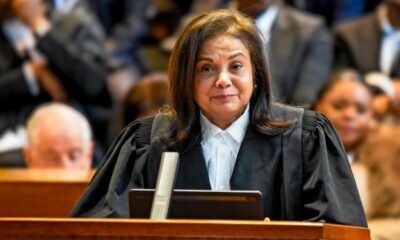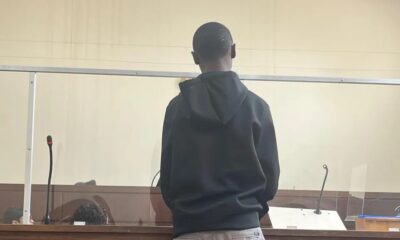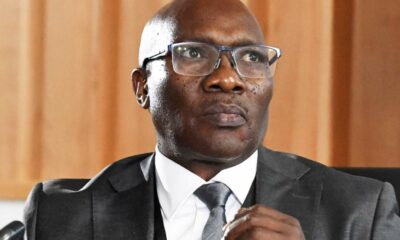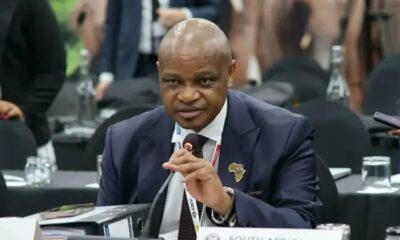News
Batohi Takes Aim at Chauke’s Mdluli Decisions as Nkabinde Inquiry Reaches Crucial Stage
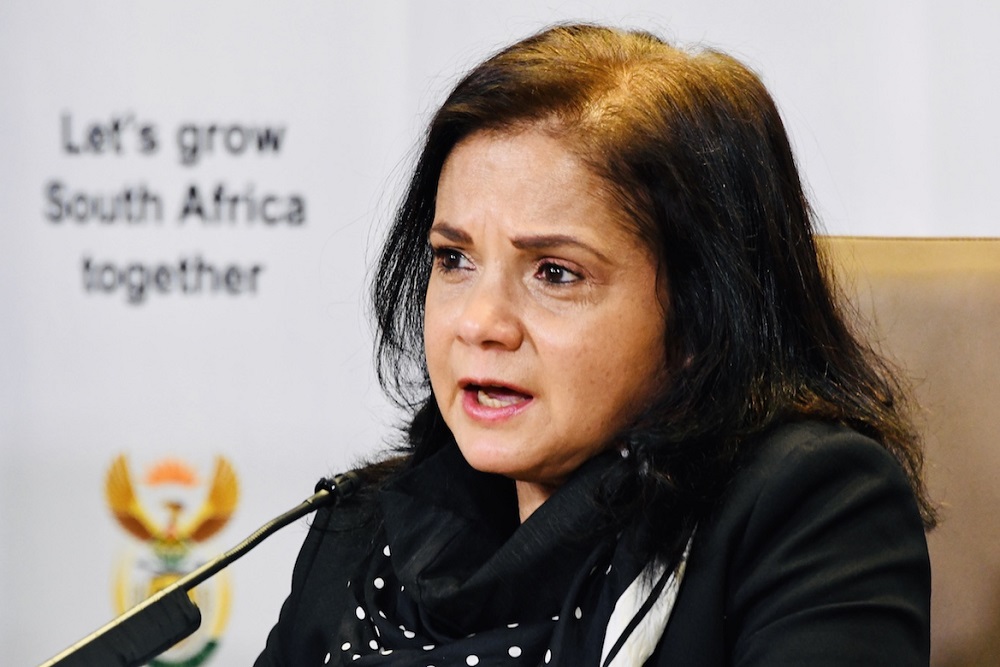
A pivotal moment for the National Prosecuting Authority
The Nkabinde inquiry has reached a decisive point as National Director of Public Prosecutions Shamila Batohi prepares to conclude her testimony. The spotlight has been fixed squarely on Deputy Director of Public Prosecutions Advocate Andrew Chauke and the question of whether he acted within the proper bounds of law and policy when he withdrew murder and attempted murder charges against former Crime Intelligence boss Richard Mdluli more than a decade ago.
In Johannesburg’s legal circles, this hearing has stirred a familiar sense of frustration and déjà vu. It taps into long-standing public concerns about accountability at senior levels of the justice system, especially when cases involve prominent or politically connected individuals. Social media has been buzzing with calls for transparency as the inquiry sifts through years of correspondence, decisions, and reviews.
Batohi: The decisions did not meet the standard
Batohi’s testimony has been firm. She told the panel that Chauke’s handling of the Mdluli matter was not aligned with the National Prosecuting Authority’s policies or expectations for a senior prosecutor. Evidence leader Advocate David Mhlamoynane SC walked her through a trail of documents that have become central to understanding why charges against Mdluli were withdrawn in February 2012 and whether that decision was justified.
According to Batohi, she had written to Chauke in May 2021 asking him to explain several decisions made during his tenure, including those related to both the Mdluli and Booysen matters. She wanted clarity so that she could make an informed decision on how to proceed.
Chauke’s written response was later read into the record. He insisted that the Supreme Court of Appeal had found his withdrawal decision not irrational and had stated that any review should be handled by the National Director of Public Prosecutions. He pointed out that a reconsideration memorandum was later submitted to the then NDPP Mxolisi Nxasana, who came to the same conclusion he had reached.
Chauke made it clear in his letter that criticism should not be directed at him alone. He argued that his detractors were misinformed, unfair, and possibly driven by hidden motives.
A different view of the timeline
Batohi did not agree. She referred the inquiry to the legal opinion of Advocate Joe Nalane SC, who emphasised that the critical moment for assessing Chauke’s judgement was February 2012, when he personally withdrew the murder charges. The later decision by Nxasana, Nalane argued, could not retroactively fix any problems in the original decision.
After consulting with the evidence team, Batohi confirmed that the relevant timeline was limited to the first weeks of February 2012, when the matter was redirected to an inquest, long before the Supreme Court of Appeal delivered its judgment.
Chauke had told her that an inquest might reveal incriminating evidence. Yet, Batohi said he never provided details about what evidence he thought was missing or what gaps he believed needed to be filled.
Concerns about the impact on witnesses
Batohi noted that the prosecution team at the time, the reviewing judge, and later the Supreme Court of Appeal all agreed that the evidence was strong enough for prosecution. She added that referring such a case to an inquest carried serious risks. The witnesses had already endured intimidation and trauma, and forcing them through yet another legal process had the potential to weaken the case rather than strengthen it. By 2012, the case was already thirteen years old, and further delays only harmed the prospects of a successful prosecution.
Even after the inquest supported prosecution, Chauke still did not reinstate the murder charges. Instead, he proceeded with lesser charges. These eventually led to Mdluli’s conviction in July 2019 before Judge Mokgoatlheng, who dismissed Mdluli’s claim that he was the victim of a conspiracy. This finding, Batohi said, further demonstrated that the representations Chauke relied on in 2012 were weak and ultimately proven false.
Where the inquiry stands now
Summing up her view, Batohi said that Chauke should have reinstated the murder charge and that his decisions were not consistent with the NPA’s policies or his responsibilities as a senior prosecutor. As she prepares to conclude her testimony, the inquiry is now left to examine whether Chauke’s choices undermined the integrity of the prosecution service and whether he is fit to remain in his post.
For many watching this unfold, the broader question also lingers: what does this mean for the future accountability of powerful figures within South Africa’s justice system? The country has been here before, and the public sentiment is clear. This time, people want clarity, closure, and a justice system that holds everyone to the same standard.
Also read: EFF Marches to Constitutional Court Over Phala Phala Judgment
Follow Joburg ETC on Facebook, Twitter, TikT
For more News in Johannesburg, visit joburgetc.com
Source: IOL
Featured Image: SABC News

